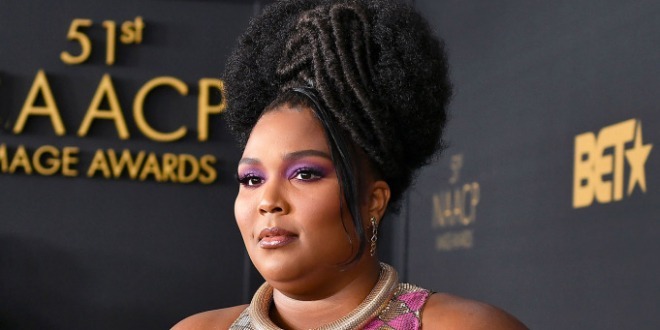“I think people are just mad to see a fat Black woman that makes pop music and is happy,” Lizzo remarked on a video she shared recently.
Work through your fatphobia and racism issues on your own schedule, not Lizzo’s.
Lizzo made a spectacular return to the spotlight this week with the release of her new track “Rumors,” featuring Cardi B, her first in two years. While many people were happy to see her back, some chose to be spiteful, subjecting Lizzo to racial insults, fatphobic remarks, and even assertions that she is the epitome of the racist “mammy” stereotype.
For those unfamiliar, the term “mammy” refers to a stereotype of Black women as caregivers who are “rotund, dark-skinned, and always glad to please with a smile,” according to Cheryl Thompson’s article in The Conversation about Hollywood depictions of the trope.
Hattie McDaniel’s part in Gone With the Wind, Tom & Jerry’s “Mammy Two Shoes,” and, more recently, the maid characters in The Help are among the most recognized portrayals of a “mammy.” The caricature has its origins in slavery, and it was used to demonstrate that enslaved Black women were pleased, if not delighted, to be slaves.
Of course, implying that a dark-skinned plus-size woman like Lizzo is a tool of white supremacy who can’t be perceived as attractive with her own agency is offensive — and Lizzo is speaking out about it.
She responded to the criticisms by posting a TikTok duet with a fan, whose handle is Pablothedon, who properly expressed his displeasure with those accusing her of exploiting the Mammy trope: “Anyone who is trying to say that Lizzo is acting like a mammy is completely wrong, and you’re colorist and fatphobic,” the fan remarked.
Lizzo also commented on the issue by saying, “This is exactly why I started off the song with ‘they don’t know I do it for the culture,’ ” she continued, “These people who are saying this are probably the same people who are mad when I am being hypersexual and the mammy trope is actually desexualized. So it can’t both be true. Make it make sense. I think people are just mad to see a fat Black woman that makes pop music and is happy. Y’all are so upset that I am happy. But this doesn’t even bother me because Aretha Franklin was criticized by the Black church when she came out, Whitney Houston was booed, and Beyonce received criticism early in her career.”Over the weekend, however, the trolls appeared to have taken their toll on Lizzo, as she subsequently uploaded an emotional Instagram Live about the hateful remarks she had received. Fans as well as celebrities such as Cardi B, Chloe Bailey, Missy Elliott, and others praised the video.

